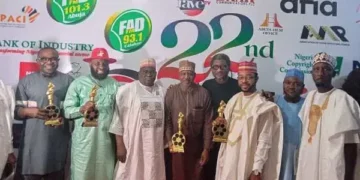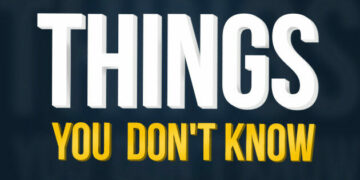Can you tell us your mission in Nigeria?
I am Alfredo Ruiz Angulo, the Ombudsman for the Republic of Venezuela; I am here to sign an MOU with the National Human Right Commission of Nigeria, to exchange ideas, interest and experience between both institutions and work together on the promotion of human rights. I will spend a couple of days here in Nigeria. I will also take the advantage to visit the Abuja University and other places and meet other people with human rights interests.
I will also appreciate that the media disseminate this to the population.
What is the motivation of this MoU and what are the areas mapped out to be strengthened?
The main motivation is how we can grow up in different experiences in the human rights landscape of Nigeria and Venezuela and to create educational programmes for women and children, youth and person’s with abilities and let the population know about women’s rights. One specific area is to know how Nigeria promotes human rights, child rights, women rights and the rights of persons with disabilities.
Nigeria has some challenges militating against the rights of women such as cultural and religious practices. What kind of idea would share with Nigeria to address these using the Venezuelan experience?
The person who really knows all the violations of human rights is the woman. That is why the focus will be women. The experience of Venezuela before was that credit loans and bank loans for agriculture or trade or commerce were given to the men but most people in charge of the households are the women. So, we increased bank loans for women. In our constitution we say that men and women have equal rights to participate in any aspect of life. In our country even the political parties must present 50% of the candidates as women.
Traditionally, political parties present candidates for different positions such as mayors, congressmen and so on. However, we realised that at the bottom of the list are usually women. There are more men than women in the national assembly and all the institutions have the majority of them men. But now, our electoral institution has made it in such a way that men and women have to participate on an equal basis.
In Venezuela, it is prohibited to inflict any kind of damage or any aggression against the women and the child.
We have also made great efforts to promote the rights of children. We realise that there was a kind of sexual abuse inside the house by parents and relations on the children which were ignored. But now, we have a new law against this kind of abuse. If we listen to the person we can understand different situations and help the people solve the problem.
Even the security agencies such as the police have taken measures of the law to stop them from abusing the people. The ministry of defence, the state attorney have a new legislation to record the activities of the police and they cannot by law ask the people to delete the video, because the video can be used in the court to denounce bad practices of the police. The idea is that we try to learn from different experiences to improve our human rights situation.
I also came to Nigeria to learn about the way different people of different religions and ethnic groups live together in harmony. It is a great opportunity to learn good practices in that manner and empower the people.
We engage all segments of the society, the women, children and people with disabilities and they have a say in what we have to do to solve their problem.
Nigeria has the Child Rights Act but they have not been domesticated by many states in Nigeria and so it is not effective. So, how did you make your human rights law, especially that of women and children functional in Venezuela?
For example, the population before the legal instrument was created don’t know anything about human rights, they don’t even hear about it. It is only the people in academia or specialists that know about it. People used to think that the policemen on duty had the right to molest them in the streets. Now, the people know about human rights and don’t accept this kind of violence.
In terms of employment, there is a specific case that companies which hire more than 50 persons 5% of them must be persons with disabilities according to the law. However, that instrument is not realistic because it is not functional but the instrument is there.
Even housing laws give priority to people with disabilities but sometimes it is not possible because not all the people know about the law.
But our constitution said that each person must participate in public issues, promoting and disseminating human rights. It means that each person is an ombudsman of human rights, but we don’t have a mechanism to make that more effective. That is why the National Assembly of Venezuela has decided this year to check every instrument of popular power and see how to activate them to improve the execution of the law.





